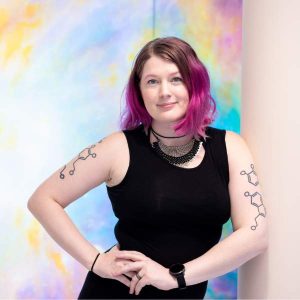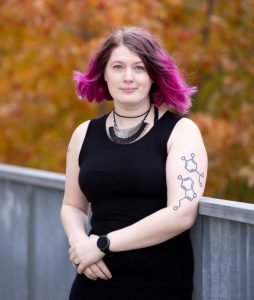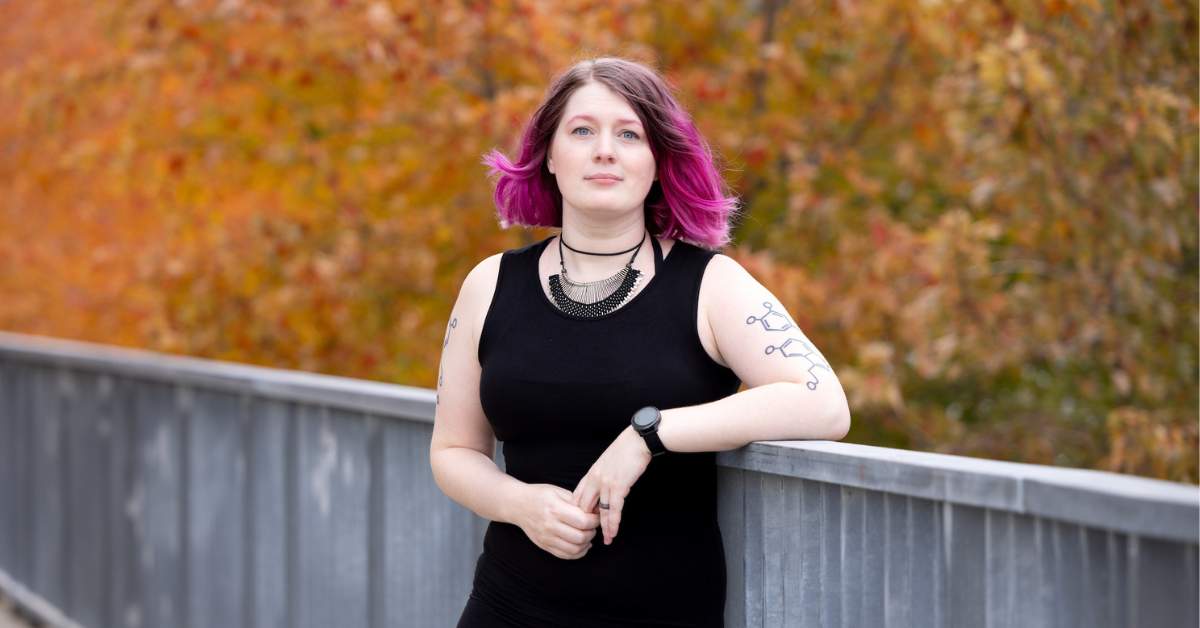Commit
Using “commit” emphasizes a pledge to prioritize antiracist efforts in making SPH a more welcome, equitable, and just organization.

How are you committing on a daily basis (professionally and/or personally) to antiracism?
“I name white supremacy and institutional racism when I recognize it, and try to decenter myself by amplifying the amazing work of Black, Indigenous, and people of color (BIPOC) at the school. I own the fact that I am racialized as white and that I benefit from white supremacy, and try not to think of myself as ‘one of the good white people’ because I am doing antiracism work. As a matter of fact, I feel like I have even more responsibility to be aware of my privilege and ensure that I am using it to uplift my BIPOC colleagues.”
What have you done already to combat racism?
“In my role as the Center for Antiracism Research for Health Equity (CARHE)’s manager of communications, I lead our organizational messaging and conduct outreach. Our aim is to amplify the work of racialized people with the ultimate goal of dismantling structural and institutional racism. I try to use my privilege as a conduit—being a sort of ‘white lady buffer.’ I handle the racist messages we get and manage the logistics of our communications so that the incredible folks at CARHE can be focused on their research.”
Challenge
We are “challenged” to accept that racism exists and to “challenge” it when we see it.
What challenges do you face in prioritizing antiracist efforts?
“There are so many barriers, but I think the biggest challenge is the scope of this work. Our antiracism efforts are fighting against centuries of institutional, political, and social inertia towards racism. And that can be a slow, painful battle that can really impact the mental health of the people doing this work. As a white woman, I am doing what I can to educate myself so I can relieve some of the burden placed on BIPOC people in diversity, equity, and inclusion (DEI) and antiracism work. Again, I try not to think of myself as a ‘good’ white person, because that is just an effort to distance myself from the white privilege I benefit from. But there is an aspect of self-loathing and disconnection that I feel in acknowledging that. As white women, we need to challenge ourselves, challenge each other, and acknowledge that our liberation is connected to the liberation of racialized people. I enthusiastically recommend White Women for personal reflection and growth!”
What antiracist change have you been excited to see happen at SPH the past few years, if any? What could we be doing better?
“Everything that the DEI team has done has been amazing! The events that we have hosted with the explicit focus on antiracism have been especially incredible. At our Strategic Plan for Antiracism (SPAR) anniversary event in 2023, the presentations were so personal and impactful that I literally cried. I also love the Justice in Public Health series. The seminars have covered so many different public health and justice-oriented topics, and there have been amazing guest speakers.
I think some opportunities for improvement would be increased and sustainable funding for groups like the Health Equity Work Group (HEWG), more investment and support for our wonderful DEI team, and more opportunities for affinity spaces. Antiracism work can be taxing, so building spaces for rest, joy, and the sharing of knowledge is super important. After George Floyd was murdered, so many institutions made promises towards antiracism that they didn’t keep. Something incredible about our school and about our people is that we have made significant and sizable steps towards keeping ours. We just need to keep the momentum going.”
Change
We have to be willing to “change” and shift our beliefs, attitudes, and actions toward equity and justice.
 What is your vision for an antiracist school of public health?
What is your vision for an antiracist school of public health?
“My vision for an antiracist school of public health is one where our leaders, faculty, staff, and students do whatever it takes to hold ourselves and one another accountable. I want a school where we have the courage to acknowledge when we’ve done harm…but also one where we can practice kindness to each other so that we can atone for our mistakes and do better in the future.”
What impact do you think the school can have on racism?
“The School of Public Health has a lot of power as a reputable institution, an employer, and an educational body. We have a huge impact on our students, our staff and faculty, the state legislature, the media, and our communities. That impact isn’t always positive, but it’s important that we keep trying. And there is power when historically white, ivory-tower institutions use their influence to uplift and amplify the truths that Black and Indigenous communities have been saying for generations. If we keep recentering on that, we can continue to set a model for others.”
“Building Equity, Driving Justice: Commit | Challenge | Change” — ties all communications related to the SPH Strategic Plan for Antiracism together under one look and feel. The theme showcases our guiding principles, and it motivates and inspires. "Agents for Change" profiles support this theme and all interview questions are related to the action words, Commit, Challenge, Change, as described above.
Submit an idea for this profile series — either your own story, or one that inspires you from another SPH individual or group.

